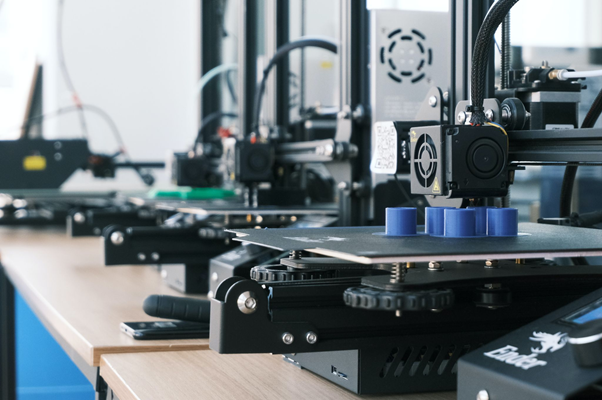
Rapid prototyping, which has been around since the 1980s, is the process of creating a scale model of your product using computer-aided design and manufacturing techniques. And because technology is more affordable and widely available today, the process is significantly faster and more accessible than it was even 40 years ago. Nowadays, even small businesses can afford 3D printing and other prototype-creation methods such as injection molding, casting, CNC milling, or turning.
If you have ever wondered whether rapid prototyping has a place in your organization and how it can boost your product development and manufacturing processes, please keep reading.
5 Ways Rapid Prototyping Can Boost Your Company
With an estimated 95% of new products failing within the first year of release, rapid prototyping provides a competitive advantage by lowering costs and increasing profits. Let’s take a closer look at how your company can benefit from this product development process.
Reduce Lead Times and Costs Associated With Product Development
Rapid prototyping allows you to significantly shorten the time it takes to go from concept to production with a new product. And, because you’re reducing development lead time, you’re also lowering development costs.
This also implies that you can create multiple prototypes throughout the design process. This allows you to see what is and isn’t working and adapt accordingly. It may be more effective for you and your designers to work from a physical model rather than a digitized plan or design.
The authentic feel of a prototype allows you to iron out issues quickly and efficiently, significantly reducing the time it takes to create a final product. In the end, the sooner you enter the market, the more likely you are to find a profitable niche before your competitors.
Increased Possibilities For Product Customization
The ability to tailor a product to a specific client or customer base significantly increases sales potential. Whether a client requires customization to match their own unique offerings or there is consumer demand for a similar secondary product with a few tweaks, customization can significantly increase bottom lines.
Suppose your product hasn’t yet hit the market. In that case, rapid prototyping eliminates the need for your designers and manufacturers to devote separate time to the customized sample while they’re still working on regular production. Instead, with rapid prototyping, these processes can all take place simultaneously.
When customization propositions arrive after the product has been released to the market, the development process usually interrupts the existing product’s production. On the other hand, rapid prototyping allows you to easily create models that show the changes without affecting the output of the regular product.
Develop Cost-Effective Models
When bringing a new product to market, it’s critical to have prototypes to show investors, employees, and potential customers long before the product is released.
If you can mass-produce your prototypes at a low cost, it won’t matter that you don’t have multiple designs. Instead, you can make several and distribute them to relevant stakeholders.
You can also make multiple versions of your prototype to demonstrate your ability to customize or personalize the product. This can pique the interest of investors and potential customers while also showing the potential of your product and business.
Make Use Of Relevant Customer Feedback
Customer feedback is a crucial component of any new product launch. Your product and business will fail if consumers are not interested or impressed. Therefore, you must maintain an open line of communication with your target market to ensure that you understand their thoughts and feelings about the product and that you can iterate accordingly.
This is another area where rapid prototypes can be highly beneficial to your company. For example, you can use your prototypes to run focus groups and feedback sessions, update them quickly and cheaply based on focus group feedback, and then bring the changed product back to the group.
This back and forth demonstrates to your target market that you genuinely value their feedback while validating your concept and providing you with an idea of how your product will perform in the market.
Increase Market Visibility
Essentially, the quicker you can get a product from concept to market, you will gain more significant market visibility with the help of your product. And the more products you do this with, the better your company’s reputation will be. As a result, you will gain greater market penetration faster, and your brand will expand at a faster rate.
Brands rarely become household names with small product runs and rarely achieve effective market penetration. Because the development process allows for refinement during production rather than after the fact, rapid prototyping improves product quality even in larger runs. In addition, rapid prototyping gives you the tools you need to get your product to market quickly and successfully.

Final Thoughts
Rapid prototyping is now a viable option for all small businesses. Because of advances in technology and lower costs, your company can quickly and efficiently create mock-ups or full-scale models of a new product. Now that you’re aware of the advantages, it’s up to you to decide how to incorporate this process, from budget and operations to the technology required to create your own rapid prototypes.




